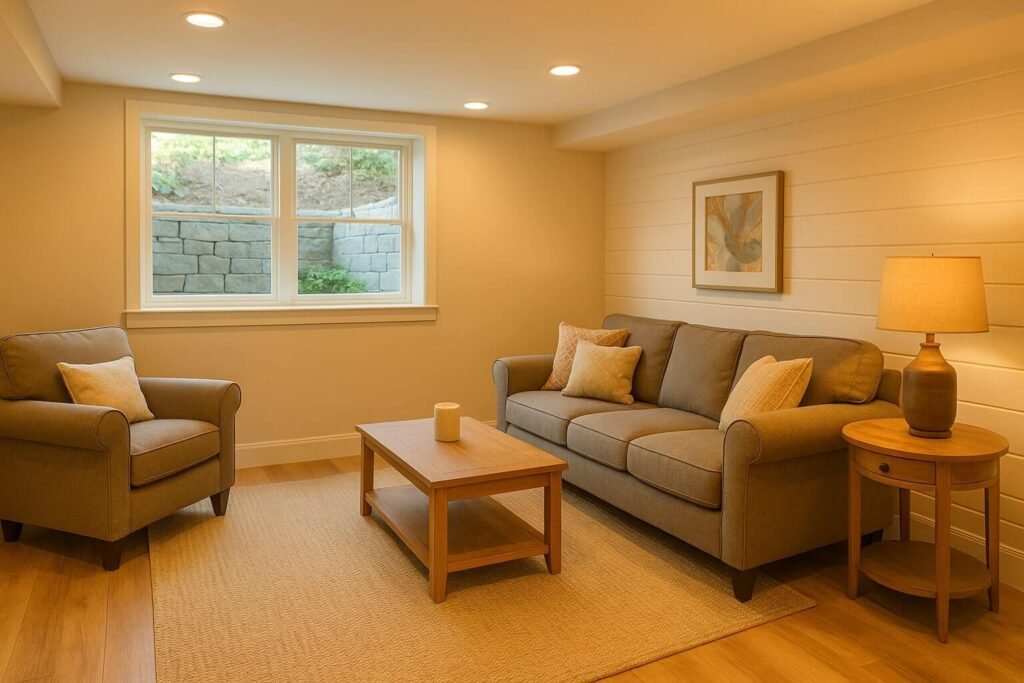Dreaming of adding more living space without the hassle of moving house? A basement conversion might just be your ticket to an affordable, spacious, and valuable home upgrade. This comprehensive guide explores exactly how to turn your neglected cellar into a comfortable, dry, and inviting space that genuinely enhances your home’s worth.
Why Convert Your Basement?
In urban areas, especially densely populated cities, space is gold. Rather than moving or expanding upwards—which can come with hefty price tags and endless red tape—a basement conversion offers an attractive, cost-effective alternative. Converting an existing cellar typically costs between £1,000 to £1,800 per square metre, and if excavation is necessary, budgets might stretch between £2,000 to £4,000 per square metre. Still, it’s usually more economical than extensions or moving altogether.
Estate agents agree that a well-executed basement conversion can increase property value significantly—often between 10% and 20%, with premium city locations seeing hikes as high as 30%. Clearly, a basement conversion isn’t just practical—it’s profitable, too!
Staying Dry: Effective Waterproofing
Ensuring your basement stays dry is absolutely crucial. This is where modern waterproofing comes into play. You’ll want to familiarize yourself with British Standard 8102:2022, which recommends combined waterproofing solutions.
- Cementitious Tanking Slurry (Type A): Ideal for low water-table areas, this solution is affordable but must be maintained regularly to prevent cracks.
- Integral Waterproof Concrete (Type B): Perfect for new excavations, this method provides robust waterproofing but is pricier.
- Cavity-Drain Membrane (Type C): Highly effective, particularly in areas with higher water tables, but requires regular pump maintenance.
Experts often recommend combining tanking slurry with cavity-drain membranes for maximum protection, providing peace of mind and a long-lasting dry basement.
Keeping Warm: Insulation and Heating
No one enjoys a cold basement. To achieve that warm, cozy atmosphere, focus on meeting or exceeding current Part L insulation standards. Aim for U-values of 0.25 W/m²K or lower for your walls and floors.
Consider these heating solutions:
- Water-based underfloor heating with a heat pump: Provides even heat distribution and reduces running costs significantly.
- Electric underfloor heating mats: Easier and quicker to install, ideal for smaller spaces or infrequent use.
- Mini-split heat pumps: Versatile and efficient, perfect for spaces where rapid heating is desired without sacrificing ceiling height.
Combining insulation with radiant heating not only enhances comfort but also reduces moisture and prevents mold—a significant plus for any homeowner.
Fresh Air Matters: Ventilation and Radon Management
Ventilation isn’t just about comfort—it’s critical for health and safety. Ensure your basement has a balanced Mechanical Ventilation with Heat Recovery (MVHR) system. This provides steady airflow, maintains comfortable humidity levels, and removes stale air.
Additionally, basements often face radon exposure concerns. It’s advisable to test radon levels post-conversion and install radon membranes or active sump pumps if necessary.
Navigating the Legalities
Remember to cover your bases with planning permissions, Building Control sign-offs, and Party Wall Agreements, especially if your basement conversion involves significant excavation or structural changes. Ignoring these can lead to costly mistakes and legal trouble down the road.
Maximizing Your Investment
To truly reap the financial benefits, pay attention to practical details:
- Include escape windows or light wells for natural illumination, making your space more attractive to buyers.
- Choose moisture-resistant finishes like ceramic tiles or engineered timber to minimize maintenance.
- Document every step of the conversion for transparency and ease of future property surveys.
A basement conversion isn’t just a home improvement—it’s an investment in your lifestyle and your property’s future value. By ensuring a dry, warm, and safe environment, you’re creating a highly desirable space that truly pays off.
Ready to unlock the potential beneath your feet? A thoughtful basement conversion is worth every penny.


